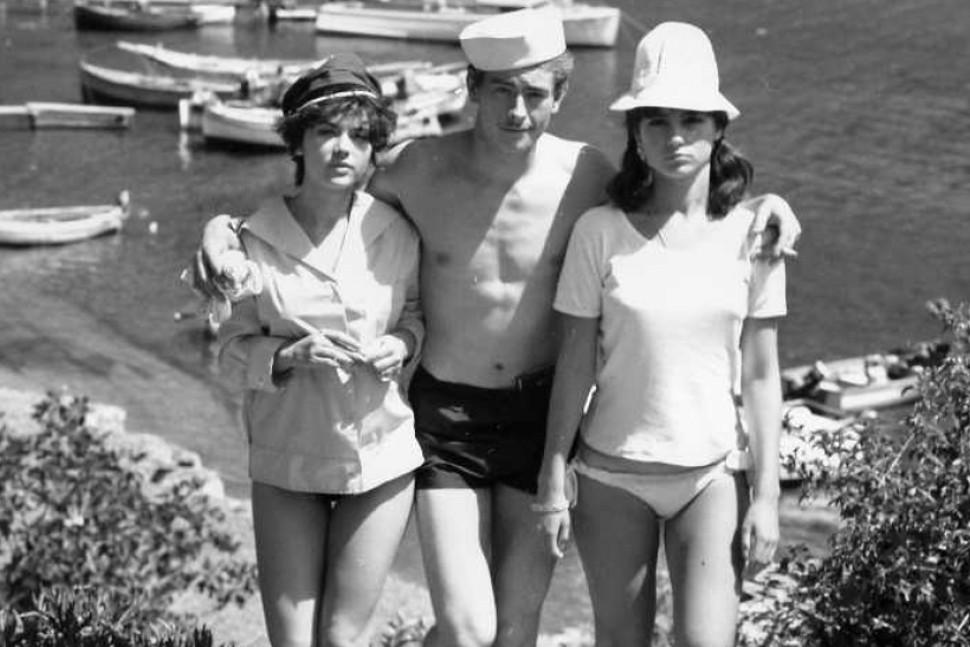| Director: | Jacques Rozier |
|---|---|
| Production: | Rome Paris Films, Euro International Film, Alpha Productions, Unitec |
| Running Time: | 111’ |
| Language: | French |
| Country: | France, Italy |
| Year: | 1962 |
| Main Cast: | Jean-Claude Aimini, Daniel Descamps, Stefania Sabatini |
| Screenplay: | Jacques Rozier, Michèle O’Glor |
| Cinematographer: | René Mathelin |
| Editor: | Monique Bonnot, Claude Durand, Marc Pavaux |
| Music: | Jacques Denjean, Paul Mattei, Maxim Saury |
| Sound: | Maurice Laroche |
| Restoration: | La Cinémathèque française, A17 |
Adieu Philippine

Synopsis
France, 1960. Michel, a young technician who is working on a TV set, has to fulfill his military duties in two months’ time in Algeria during the Independence War. Meanwhile, he has seduced two girls joined at the hip: Liliane and Juliette. He goes out with one then with the other. Together, they wander about with recklessness in Parisian coffees and clubs. When Michel leaves brutally his work, he goes on holidays in Corsica at the Club Méditerrannée. Soon, Liliane and Juliette are joining him. A game of seduction, complicity and rivalry is evolving between them.
Adieu Philippine is Jacques Rozier’s first feature-film. Defined as one of the Nouvelle Vague’s major work, of whom Jacques Rozier is one of the precursor, it has made a terrific impression at the Cannes Film Festival when it was shown in 1962 at the Critic’s Week. This drama comedy emphasizes the background which is a serious and taboo subject, the Algerian war. The three main actors are all amateurs, they offer a freshness and an original tone that we will find in all of Jacques Rozier’s films.
Director’s Statement
Adieu Philippine was conceived in 1959. It was the movie of the departure in Algeria, the story of a French guy like all the twenty-year-old French guys who were obliged to do their military service there. It was the end of a youth, the last holidays; the ship he is boarding on, while receiving his roadmap, already represents the war.
The audience will see the story of a boy and two girls, I’ve built some kind of “marivaudage” but the real topic is departure and wrench.
«Les Lettres françaises», May 24th 1962.
Production/Distribution
PRODUCTION: A17
31 rue Brézin
75014, Paris – France
Tel. +33 (0)6 82831642
jacques-rozier@laposte.net
http://www.exterieurnuit.fr/accueil.html
PRODUCTION WHEN THE FILM WAS MADE
Rome-Paris Films
COPRODUCTIONS WHEN THE FILM WAS MADE: Unitec, Euro International, Films Alpha Productions
RESTORATION BY: Cinémathèque française and A17 with the support of Centre national du cinéma et de l’image animée. In collaboration with Les Archives audiovisuelles de Monaco, La Cinémathèque suisse and Extérieur Nuit
PRESS OFFICE: Elodie Dufour - La Cinémathèque française
51 rue de Bercy
75012, Paris – France
Tel. +33 (0)1 71193365
e.dufour@cinematheque.fr


